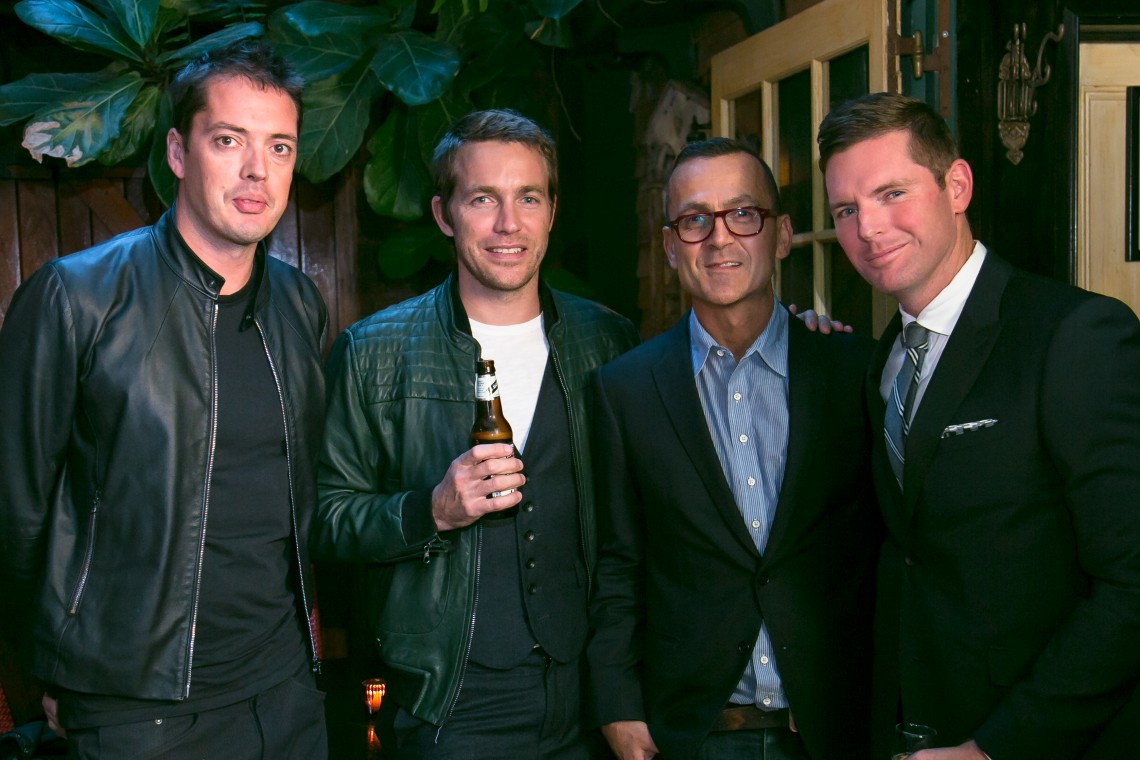Douglas Hand knows the ins and the outs of fashion businesses.
He provides legal counsel for many designers and brands, including Rag & Bone, 3.1 Phillip Lim, Rodarte, Costello Tagliapietra and Steven Alan, as well as the CFDA and The Fragrance Foundation.
Raised in Southern California and educated at Vassar and New York University, Hand launched his career at global mergers and acquisitions firm Sherman & Sterling before founding HBA with Alan Baladachin and David Amburgey 13 years ago.
HBA’s focus is on businesses where intellectual property is a core asset. While his partners concentrate more on media and entertainment properties, Hand focuses on fashion and lifestyle branded products. As Hand put it, “Being around so many creatives is extremely captivating for a practitioner.”
He is a member of the CFDA’s Fashion Incubator Advisory Board.
Earlier this summer, Hand (aka @HandoftheLaw) talked to CFDA.com about practicing law in fashion, the important things an aspiring designer should know, and his own sartorial style.
CFDA.com: What are the pros and cons of working with fashion people?
Douglas Hand: “One of the challenges — but also opportunities — is to recognize a designer’s view of their brand as valid. That view is the brand. You are in no position as an adviser to question it, and supporting it is important. I cannot read the tea leafs of consumer actions, wants or desires, but designers can. That’s why they do what they do and I do what I do, which is to help them protect their brand.
The 1-on-1s with the creative director who is also the CEO and the social media director and everything else can be challenging but also tremendously rewarding for my lawyers and me because you really are adding value.
We pride ourselves on the ability to communicate with designers effectively so that they not only understand what we are saying, but we also hear what they are saying to get the business or licensing deal or other transactions accomplished.”
CFDA.com : How crucial is it for a designer to have legal guidance?
D.H.: “It is extraordinarily important because the foundation for a fashion company is that the brand and therefore its trademark and, to a lesser degree, its design elements are protected. Starting a business without protecting those from a legal standpoint is potentially like building on sand. Some of the worst stories in fashion are about brands that started without doing a trademark search and without canvassing the globe to see if their brand and name are uniquely theirs. It can be a very expensive problem to fix and sometimes it’s unfixable.”
CFDA.com: What areas in fashion require legal counsel the most?
D.H.: “Intellectual property, corporate, compensation and benefits, and real estate. Intellectual property is the brand protection and some of the design protection, and the licensing of those brands. Corporate is a catch-all for general business from legal entity structuring to contracts. Compensation and benefits is code for labor and dealing with your employees; and real estate, because so many brands have gone to a direct brick-and-mortar model and if you have 50 stores, you have 50 leases, which all need to be negotiated.”
CFDA.com: What, in your view, is the biggest cautionary fashion tale?
D.H.: “The startup that hasn’t done its due diligence and protected its brand name. There is nothing more upsetting to the momentum of a brand or more costly than to have to change your name or go out and buy someone else’s trademark.”
CFDA.com: Finally, whose suit are you wearing today?
D.H.: “This is a great summer weight suit from Phillip Lim. Probably 90 percent of my wardrobe is made up of clients. One of the perks of beings an HBA associate is getting invited to their Friends & Family days.”



